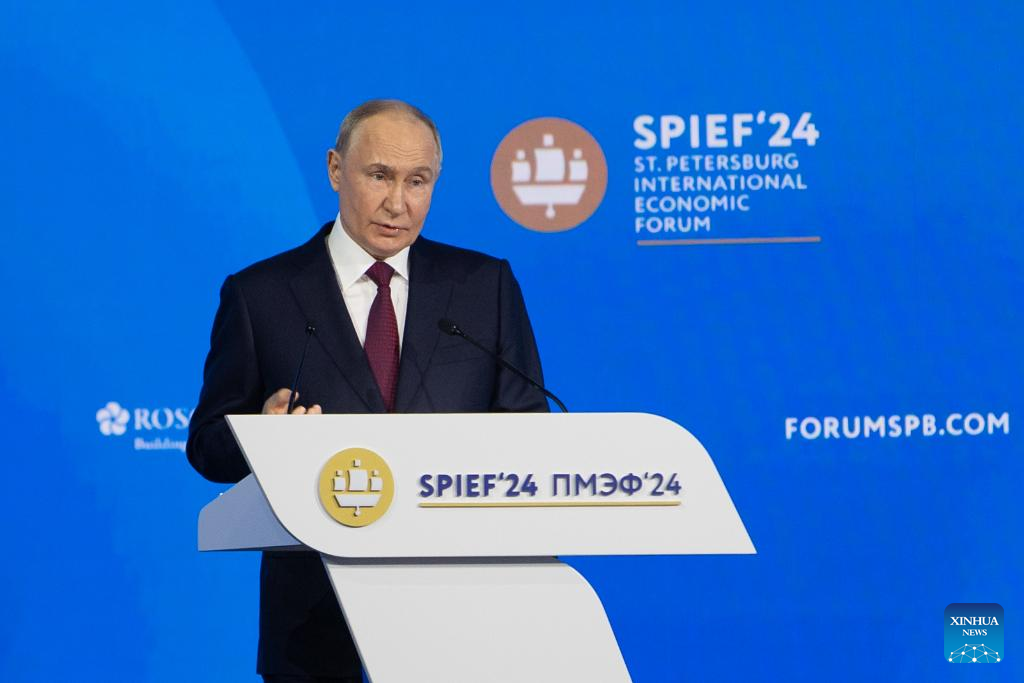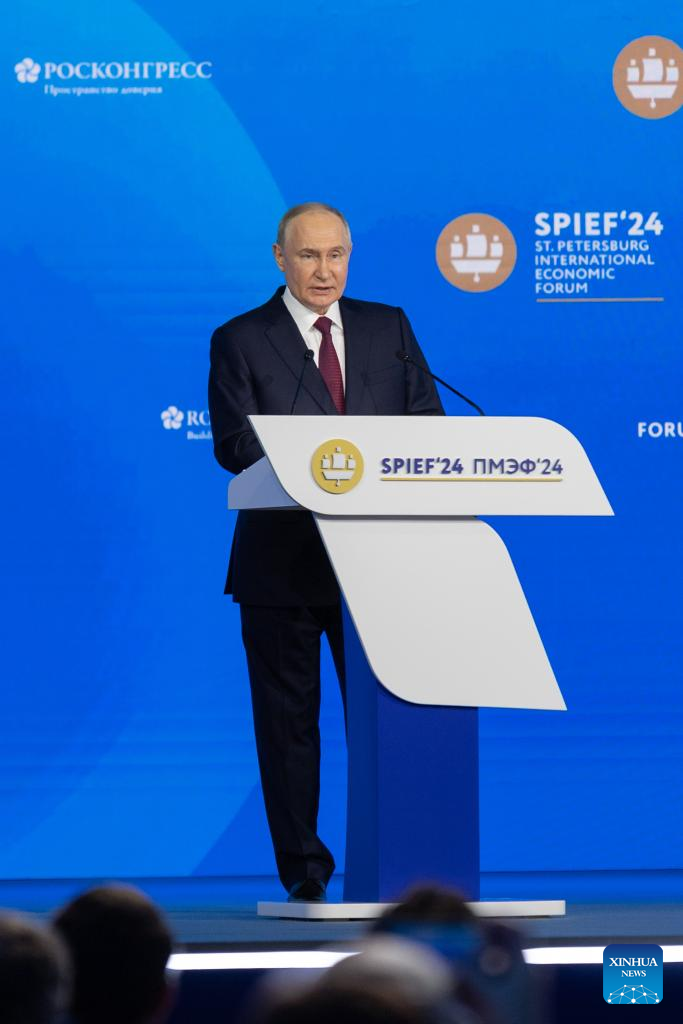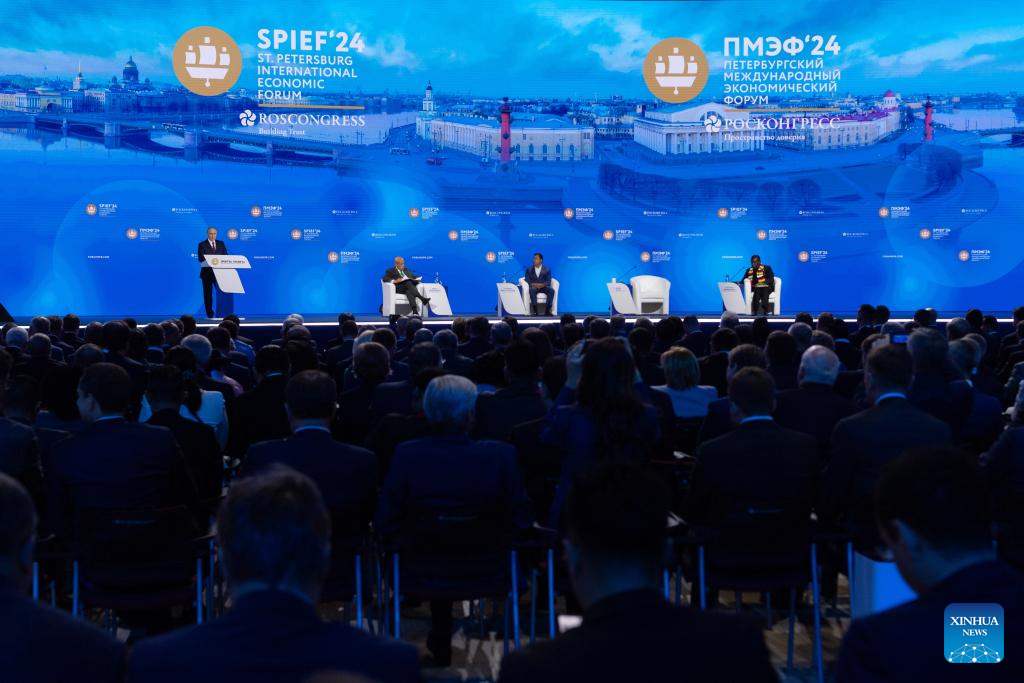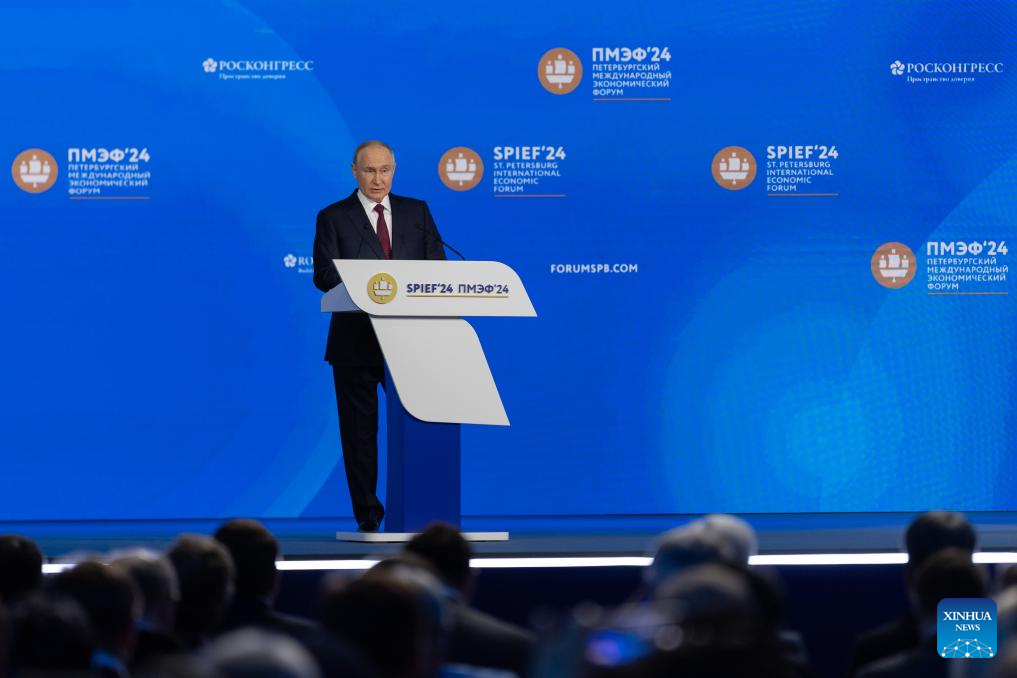
Russian President Vladimir Putin speaks at the plenary session of the 27th St. Petersburg International Economic Forum in St. Petersburg, Russia, on June 7, 2024. (Xinhua/Bai Xueqi)
ST. PETERSBURG, June 7 (Xinhua) -- The Russian economy is demonstrating resilience and adaptability amid changes in the global economic landscape and the rise of a new multipolar world, Russian President Vladimir Putin said on Friday.
"The global economy has entered an era of serious, fundamental changes. A multipolar world is being formed with new centers of growth, new investment and financial ties between states and companies," Putin said in a speech at the plenary session of the 27th St. Petersburg International Economic Forum.
"The Russian economy is able to respond to these challenges and is also changing dynamically, gaining greater strength and stability," he noted.
Putin outlined several significant structural changes that will be taking place in the country's economy, one of which concerns changes in Russia's export and import structure. In this context, Russia's primary focus will be on strengthening economic ties with friendly countries, which will shape the future of the global economy, he noted. These countries currently make up three quarters of Russia's trade turnover.
"We will increase the use of national currencies in foreign trade settlements, and improve the safety and efficiency of such operations," the president said, adding that the BRICS countries are currently working on the development of an independent payment system, which will not be subject to external interference.
Putin said that Russia welcomes a further expansion of the BRICS association, and "supports the desire of interested partners on different continents to foster contacts with BRICS."
"We will continue to develop relations within BRICS not only in the field of economics and finance, but also in the field of security, humanitarian cooperation, and other sectors," Putin said, adding that the bloc will take into account global challenges and the rising prospects of national economies.
According to the president, by 2030, the volume of Russia's non-resource, non-energy exports must grow by at least two-thirds in comparison to 2023.
Russia will also focus on the development of transport infrastructure, and will aim to boost shipping capacity on the Arctic Sea Route and the Eastern railways, he said.
Putin pointed out that the country will strive to achieve "a new quality and content of economic growth," noting however that Russia's economic growth has already surpassed the global average, according to GDP data from last year and the first quarter of 2024.
The president said that other structural changes will focus on strengthening the role of small and medium-sized businesses in the Russian economy as well as bolstering the development of Russia's regions.
Putin noted that two other key structural changes for Russia will be the reduction of poverty and inequality, and improvement of the quality of life for families.
The 27th St. Petersburg International Economic Forum began here on Wednesday, featuring delegates from 139 countries and regions. The theme of this year's event is "The Formation of New Areas of Growth as the Cornerstone of a Multipolar World." ■

Russian President Vladimir Putin speaks at the plenary session of the 27th St. Petersburg International Economic Forum in St. Petersburg, Russia, on June 7, 2024. (Xinhua/Bai Xueqi)

Russian President Vladimir Putin (1st L, Rear) speaks at the plenary session of the 27th St. Petersburg International Economic Forum in St. Petersburg, Russia, on June 7, 2024. (Xinhua/Bai Xueqi)

Russian President Vladimir Putin speaks at the plenary session of the 27th St. Petersburg International Economic Forum in St. Petersburg, Russia, on June 7, 2024. (Xinhua/Bai Xueqi)



